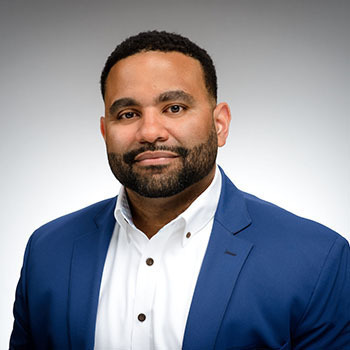Researchers develop new method to help investors predict firms’ decision-making, optimize portfolios and generate greater returns
Top management teams at most businesses are charged with maximizing shareholder wealth, making any actions that impede this goal their sole responsibility.
However, these management teams are often pressured to skirt normal business practices in order to meet earnings thresholds. One way is through myopic marketing spending — reducing marketing as well as research and development expenses to boost earnings, which increases short-term results at the expense of long-term performance.
New research from the University of Notre Dame introduces a novel method to help investors predict myopic marketing spending up to a year in advance, giving investors ample time to optimize their portfolios and generate much better returns.
A survey of 500 global executives, conducted jointly by the nonprofit Focusing Capital on the Long Term and McKinsey, found that top management teams continually feel pressured to meet near-term earnings targets at the expense of long-term strategies. They make myopic decisions to make the firm look better. This behavior often happens prior to capital increases, initial public offerings, share repurchases and C-suite retirements.
According to McKinsey, top management teams are willing to “cut long-term growth investments by 17 percent, on average, when faced with a 15 percent decrease in revenue.” This short-term decision making has a downside. It harms stakeholders, including investors, customers and the boards of directors. It is also associated with inferior stock-market performance in the long run, due to loss of market share and delayed innovation.
Unfortunately, investors only notice narrow-minded marketing spending after the fact, through public financial statements.

A new prediction strategy in “Can Words Speak Louder than Actions? Using Top Management Teams’ Language to Predict Myopic Marketing Spending,” forthcoming in the Journal of Marketing from lead author Andre Martin, assistant professor of marketing at Notre Dame’s Mendoza College of Business, along with Tarun Kushwaha from the University of Wisconsin, offers several advantages compared with existing methods.
Martin analyzed the language management teams use in earnings calls, specifically focusing on marketing and earnings emphasis, to predict future instances of myopic marketing spending. The study looked at 11 million sentences from nearly 25,000 quarterly earnings call transcripts of 1,197 firms between 2008 and 2019 and revealed that this approach can predict myopic marketing spending at a quarterly frequency.
“By focusing on the marketing and earnings emphasis language they use, we can forecast instances of myopic marketing spending up to a year in advance,” said Martin, a former software engineer and program manager for Xerox and defense contractor SRC Inc. who specializes in the downstream effects of firm communication. “This provides longer foresight and more frequent prediction opportunities (quarterly) than current existing prediction methods.
“We find that one standard deviation increase in earnings emphasis is associated with a 23.68 percent increase in the likelihood of future myopic marketing spending.”
The findings also showcase fiscal impact.
The researchers compared the financial returns of firms that engage in myopic marketing spending with those that do not and found that using this method to avoid investing in myopic firms yields an additional 6.44 percent in returns over four years. This translates to 1.61 percent annual abnormal returns over existing prediction methods.
“More than just financial gains, this study’s findings have profound governance implications,” Martin said. “They equip boards with an early detection tool for executive actions that could harm long-term firm value, enabling timely intervention.”
They also empower individual investors with insights into executive intentions.
This prediction tool provides stakeholders, regulators and firm competitors with valuable insights into potential top management actions. These actions could affect not only long-term firm value but also market conditions. Reducing the information barrier around executive intentions enables greater monitoring through early detection of myopic actions.
Contact: Andre Martin, 574-631-0711, amarti94@nd.edu
Latest ND NewsWire
- Notre Dame student uses ‘American Ninja Warrior’ spotlight to fight world hunger via his nonprofitOn July 14 (Monday), a University of Notre Dame business student will compete in the semifinal round of NBC’s “American Ninja Warrior” to advocate for an end to world hunger, an ambition he works toward by making knotted dog toys and collecting donations to his nonprofit.
- In sub-Saharan Africa, 1 in 6 cancer medications found to be defectiveSerious quality defects were found in a significant number of cancer medications from sub-Saharan Africa, according to new research from the University of Notre Dame.
- Alumni Association awards 2025 Lennon Life PrizesThe Notre Dame Alumni Association recognized nine alumni clubs as recipients of the Lennon Life Prize — part of the Chuck and Joan Lennon Gospel of Life Initiative, a set of programs focused on encouraging the University’s dedicated network of clubs to uphold the value of life at all stages.
- Prioritizing prenatal care may decrease low birth weight outcomes in The Gambia, Notre Dame research findsA new study co-authored by University of Notre Dame researchers highlights the importance of prenatal care for improving the health of mothers and newborns, providing evidence that can inform policy.
- Navigating the waters of peace: Researchers address challenges, opportunities in implementation of Colombia's Peace AgreementNearly half of the commitments outlined in Colombia's historic peace accord face significant challenges and may not happen in time unless policymakers make several key interventions, warns a new report from Notre Dame's Peace Accords Matrix. The report offers a blueprint to salvage an accord that has lagged behind its implementation deadlines, putting its legacy at risk. It highlights timely fixes that can strengthen the agreement.
- ‘Returnless returns’ boost brands among consumersReturnless returns can increase brand support by fostering goodwill, according to John Costello and Christopher Bechler, assistant professors of marketing at Notre Dame’s Mendoza College of Business. Their study, “Just Keep It: When and Why Returnless Product Returns Foster Brand Support,” is forthcoming in the Journal of Marketing Research.













